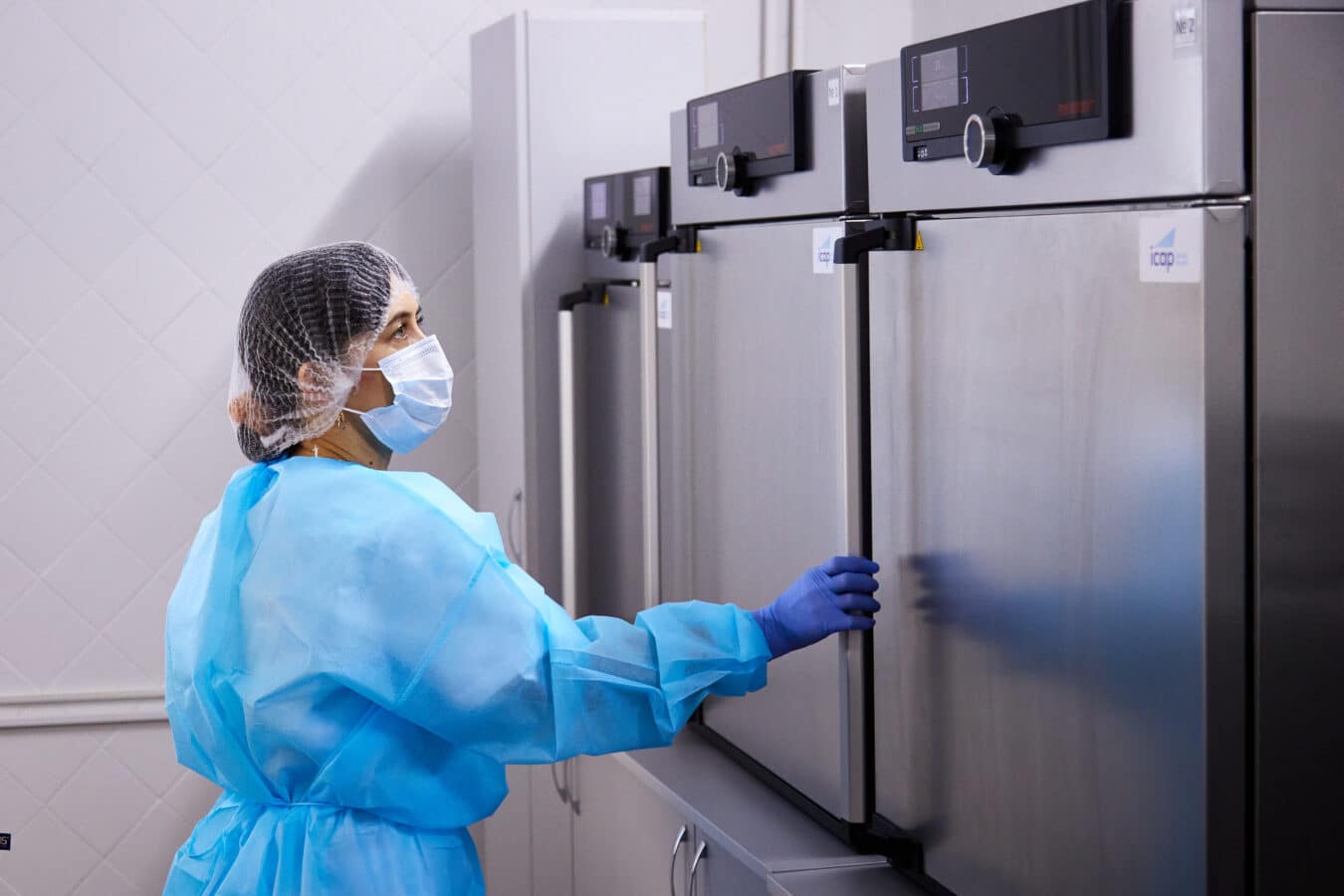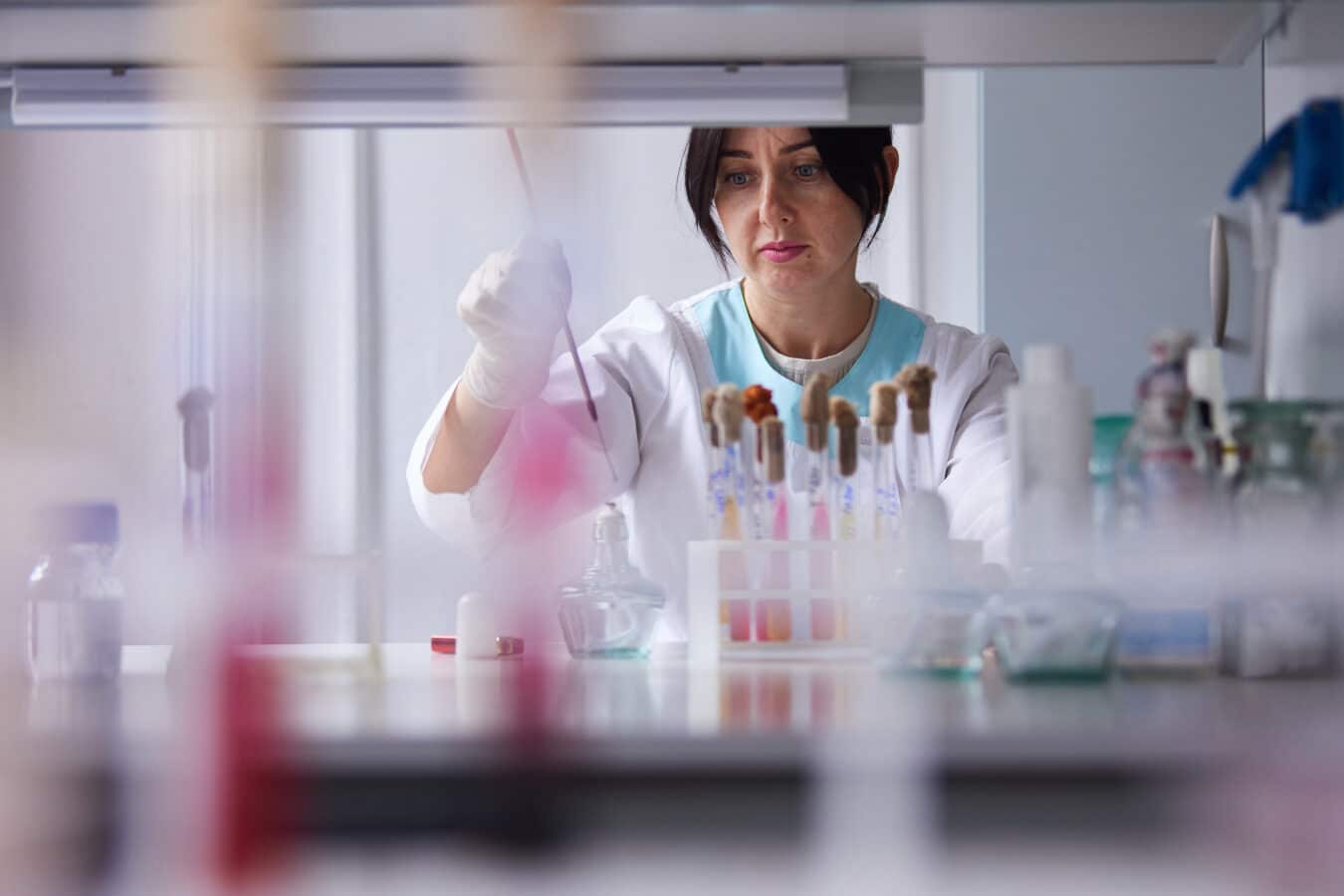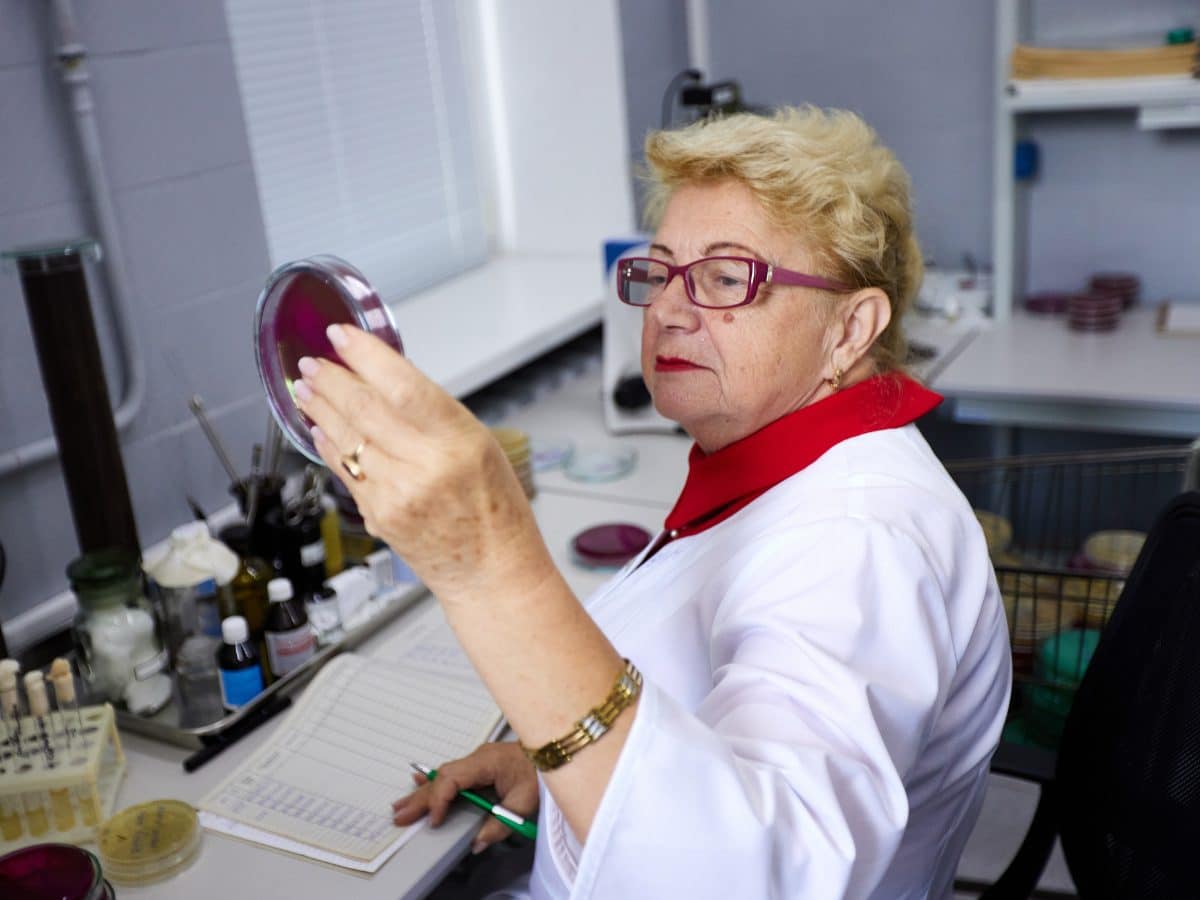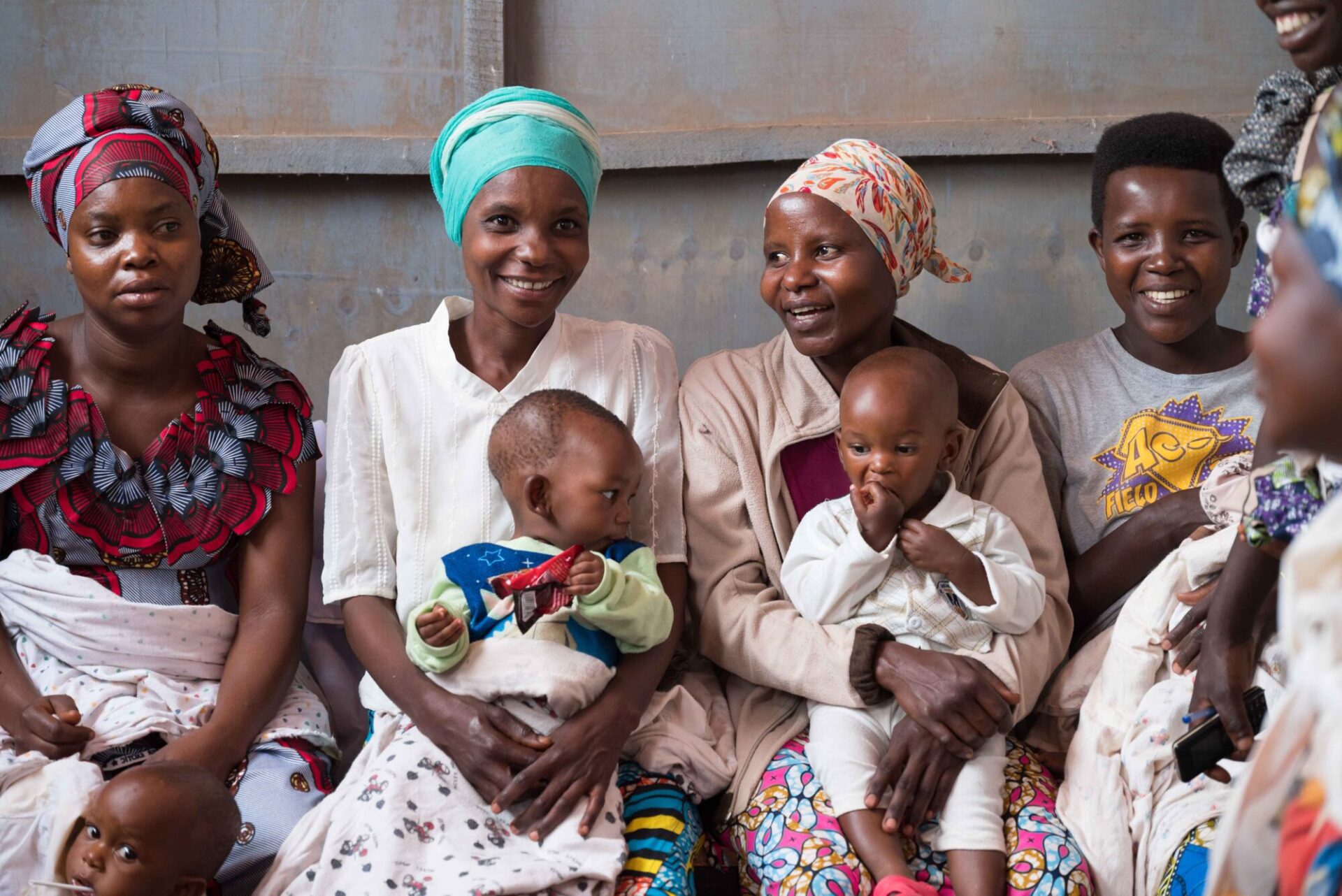Health facilities across Ukraine face a triple threat. While Russia’s invasion of the country has increased the number of wounded patients in need of care, infrastructure damage and other factors have led to shortages in staff and essential medical supplies. These stressors have affected infection prevention and control practices, creating an environment ripe for the spread of antimicrobial-resistant bacteria.
ICAP in Ukraine is working to ensure that health care facilities and laboratories across the country can better detect antimicrobial resistance (AMR) – and ultimately decrease the risk of difficult-to-treat infections.
AMR occurs when bacteria, viruses, fungi, and parasites no longer respond to medications that treat them. A range of factors contribute to Ukraine’s vulnerability to AMR, including high pre-war rates of AMR, an increase in traumatic wounds, and war-related burdens on health care facilities. A 2022 study of three Ukrainian hospitals showed that among 353 patients, 50 had health care-associated infections and 60 percent of those patients experienced AMR.
AMR poses a major threat to both health systems and economies. The spread of drug-resistant pathogens means common infections are more difficult to treat, thus creating the need for more intensive – and expensive – care. As Ukrainian refugees continue to flee from the country, antimicrobial-resistant bacteria are spreading beyond its borders, having now been detected in at least six other European countries and even in Japan.
With funding from the Centers for Disease Control and Prevention (CDC) — and in collaboration with the World Health Organization, Ukrainian Public Health Center, Association of Public Health Laboratories, and European Society for Clinical Microbiology and Infectious Disease — ICAP in Ukraine is supporting the country in decreasing these AMR risks by providing laboratory and clinical training, donating improved lab equipment, developing standardized procedures, and implementing improvement plans to address AMR for the country’s hospitals and laboratories.
“ICAP’s project in Ukraine, launched in 2023, aims to strengthen infection prevention and control measures in health care facilities, addressing the growing challenge of antimicrobial resistance exacerbated by the current crisis,” said Oksana Dereviankina, MD, MBA, national program coordinator for ICAP in Ukraine. “Our work is critical to ensuring the safety of both patients and health care workers.”
“By closely monitoring resistance patterns, we can better understand how infections evolve and ensure the appropriate use of antibiotics,” Dereviankina added. “Equally important is the education of health care workers. Their knowledge and practices are vital in preventing the misuse of antibiotics, ensuring timely diagnosis, and implementing infection control measures.”
Currently, ICAP is supporting ten hospitals and laboratories across five regions, providing extensive training to health providers and lab personnel. Training has focused on a number of areas, including collecting and analyzing data on the spread of AMR using specialized software tools and operating new equipment donated by ICAP, such as the Matrix-assisted laser desorption ionization–time of flight (MALDI-TOF) machine – which can identify drug-resistant pathogens. ICAP has also provided sequencing platforms, automated blood culture and microbiologic analyzers, microscopes, freezers, furniture, reagents, and more.
In addition, six Ukrainian laboratories completed CDC’s Lab Assessment of Antibiotic Resistance Testing Capacity (LAARC), which is designed to support low- and middle-income countries in identifying and correcting laboratory practices that contribute to inaccurate AMR data. The assessment tool evaluates 15 different domains of laboratory practice, such as quality of organism identification and antibiotic susceptibility testing, patient sample collection, transport, and management, preparation of lab testing supplies, and data management. Based on results from the assessment, ICAP supported participating labs in developing improvement plans for addressing any gaps that were revealed to assist labs in reaching the optimal LAARC score of 100 percent.

A laboratory staff opens an incubator donated by ICAP.
From August 2022 to August 2023, participating laboratories significantly improved their overall LAARC scores by 16 percent to 75 percent. The highest performing laboratory achieved an overall LAARC score of 88 percent, a 22 percent increase from its initial score. Quality assurance, organism identification methods and associated procedures, and policies and analyses for antibiotic susceptibility panels were among the areas showing the greatest degrees of improvement.
By 2024, with ICAP’s support, six labs participating in the project since 2022 earned a LAARC score above the CDC-defined goal of 80 percent.
Furthermore, ICAP supports all participating laboratories in reviewing standard operating procedures, providing feedback to ensure all work toward best practices, and then following up with laboratories to support implementation of procedures.

A laboratory staff member sterilizes an inoculation loop, which is used to pick up and transfer bacteria.
One participant of ICAP’s recent training on AMR data analysis noted that they gained, “information and skills that will help to work with programs on problems of antibiotic resistance and ways to overcome them.” Another participant said, “Everything is at a great level. The quality of the material, the location, support, patience, understanding of the organizing staff, and quality control in medical and bacteriology laboratories according to international standards.”
“Participants have responded positively to the training,” added Dereviankina, “valuing the practical tools and real-time situational analysis data from health care sites, which enhance their ability to improve a patient’s journey to recovery.”
About ICAP
A major global health organization that has been improving public health in countries around the world for two decades, ICAP works to transform the health of populations through innovation, science, and global collaboration. Based at Columbia Mailman School of Public Health, ICAP has projects in more than 40 countries, working side-by-side with ministries of health and local governmental, non-governmental, academic, and community partners to confront some of the world’s greatest health challenges. Through evidence-informed programs, meaningful research, tailored technical assistance, effective training and education programs, and rigorous surveillance to measure and evaluate the impact of public health interventions, ICAP aims to realize a global vision of healthy people, empowered communities, and thriving societies. Online at icap.columbia.edu







